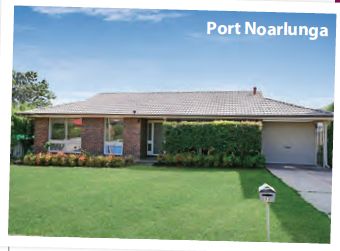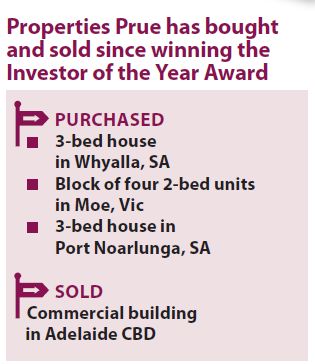Since winning the Your Investment Property Investor of the Year Award in 2009, Prue Muirhead has powered ahead to achieve what many only dream about. We caught up with her to find out how her life has changed since winning the title.
When Prue Muirhead blazed a trail as winner of Your Investment Property’s Investor of the Year Award in 2009, little did she know how much her life would change forever.
While she was already an avid property investor before being crowned Investor of the Year, Prue says she was blown away by the amazing opportunities that came her way following her win.
“The impact of winning the title has been amazing,” says Prue. “My husband, Andy, encouraged me to enter many times before I did, and I am so glad I listened. Since then, not only did I continue my investments and grow the portfolio, but other opportunities also started to come which I don’t believe would have happened if I had not won this award. It’s very rewarding and fun, too!”
“I now teach about property investment at TAFE College in Adelaide, and I’m really loving it. I meet so many interesting property people with a variety of strategies,” she says.
Prue and Andy have also started a property management business, Muirhead Property Management, to help fellow investors get the best returns on their property investments. “It’s a small business and we handle everything to do with adding value, tenants, and property management. I do this with Andy, who has a background in law enforcement [SA Police] and as a licensed builder.”
After winning the award, Prue and her family travelled Australia in 2010 and 2011, home-schooling their children and looking at properties all over the country.
“I have continued to purchase more property, and I have grown the portfolio quite well. I’ve added another six positive cash flow properties. My portfolio now sits at 18 in total, and each and every one of those is positive cash flow,” she says.
Prue’s inspirational story
In 2002, we were faced with the reality of having to rent out our home to collect the rent and live in a caravan. Despite the fact that we were running a small business, our lender had told us we could not afford to live in our own home. We had 30 days to make this crucial decision. We also had no super and no savings.
Then I heard an advertisement on the radio: ‘Having trouble getting finance and in business?’
Out of desperation, I rang the company, which was able to offer us a low-doc loan. We refinanced our home and managed to stay in our own house, thank goodness!
A few years later, I read a book about buying one home a year for 10 years, then selling off a selected number in retirement and living off the rents of the remaining properties. This sounded like a great idea, so I purchased a small home around the corner from our family home and started from there.
My decision to invest in property was purely for the purpose of building our retirement fund. We had no super because we were running our own business, and I was really worried that we would have nothing for the future. I didn’t want to rely on the government to pay us a pension. I also knew that when our small business was sold, it would not sell for any more than the equipment value, which would leave us with virtually nothing.
So we started actively investing in 2006. I have only ever invested $22,000 of my own cash. The rest has been the bank’s money through equity use.
Our current portfolio is now valued at over $4m, with a net worth of approximately $2m. We have always borrowed 100% of the value of the properties and made sure the investment properties were positively geared, so they would not be a drain. I believe that buying negatively geared properties ties you to a job, but positively geared properties allow you out of your job.
We only ever paid a deposit for our first home (approximately $22,000).
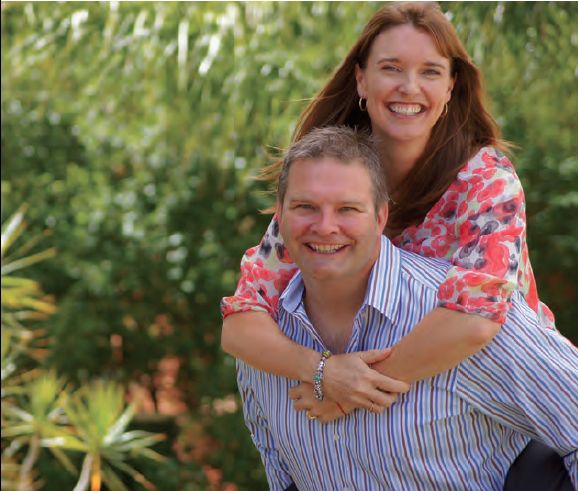
My overall property strategy
It’s really very simple: I adopt a buy-and-hold strategy because it’s not as risky. I’m planning to never sell so that I never have to pay capital gains tax. I don’t value the option of selling because I can generally access the money anyway through redraw to buy the next investment property.
My biggest mistakes, regrets, lessons learned
I sold my first property back in 2000, and I have always regretted doing that. I just sold somebody else all my capital growth. This property would now be worth $300,000, and I purchased it for $66,000. It was returning 12% (very positively geared) – I don’t know what I was thinking. I guess I was young and inexperienced, not really understanding what I had.
My most successful property transaction
This is a tough question as all my properties have unique factors that have been great. I have to say that buying blocks of units on single titles and then having them retitled to individual lots has been the easiest way to increase the value of my portfolio. It’s very simple to do. It creates instant growth of anywhere up to 40%, provided you buy smartly and don’t overpay at the start.
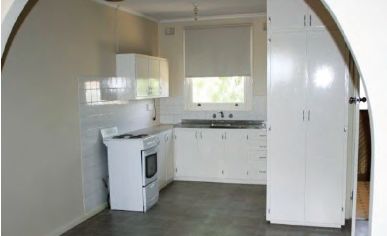
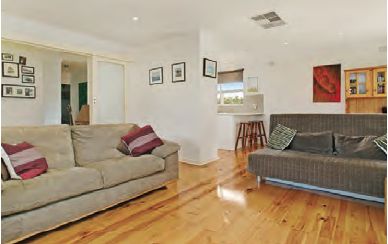
If I were to start investing all over again ...
I would have started investing in property earlier. My journey has been full of amazing experiences, and I have learnt so much over the years. I think people think I’m smart, but I’m not. I never finished high school and never went to uni or TAFE. But I do love numbers, so I am a little disappointed that I sold that first investment property.
But a mistake is only a mistake if you do not learn from it, and I certainly have learnt from that mistake!
1. A good mortgage broker could be better than a good bank, because they have access to hundreds of different lenders. This gives you a better loan deal as a whole. The best part of it is that they’re generally free.
2. Every lender has different criteria,so if one lender will not loan you the money based on your current situation, it doesn’t mean that other lenders will not lend you the money in the same situation.
3. Lenders don’t take into consideration 100% of your rental income, which is fair as there are other costs involved, such as vacancies, etc. However, a different lender may consider a larger percentage of your rental income to allow for a larger loan. Therefore, it can often be a better choice to change lenders regularly.
4. Finance is considerably harder to find when buying a block of units on one title. That’s because buying single units/flats is similar to buying a Torrens title home, and lending is easier. We ended up with a commercial loan for our block of four units, until the units were placed onto separate titles, which we then refinanced with another lender as a normal loan at a normal interest rate.
5. Just like having a good financial advisor, I have found it imperative to use an experienced mortgage broker who is also a serious property investor, so they understand the bigger picture and don’t let me borrow from the wrong lenders.
6. When selling an investment property and paying capital gains tax on the sale, I now know not to park the proceeds of the sale directly into another investment mortgage, as when we use this money for personal spending, the proceeds from the sale are considered non-tax-deductible debt because they have been used for personal reasons/costs.
The 10 things I wish I knew about picking the right property
1. I wish I knew, when I was starting out, that you could get properties that put money into your pocket each week after loan repayments and all associated costs. I now only buy positively geared properties.
2. Friends don’t necessarily know best, and now I only listen to people who are not only ‘talking the talk’ but also ‘walking the walk’.
3. It’s best to buy a single property that has the capacity for a dual (second) income.
4. By purchasing a property built in the last 30 years I have additional depreciation benefits, as you can depreciate the bricks and mortar and have a larger tax refund and effectively a larger return on your investment.
5. Asbestos is such a turn-off when a property has to be resold (tenants don’t seem to mind; only purchasers).
6. A commercial property has completely different rules when it comes to lenders and vacancy rates. The returns on commercial properties can be fantastic, but beware that you can have long vacancies of anywhere between six and 12 months. It can take considerably longer to find a tenant for a commercial property, compared to a residential property.
7. Just because a vendor chooses to sell their property doesn’t mean their bank will settle. If the vendor’s loan from the bank is higher than the purchase/sale price and the vendor does not have the cash/funds for the balance of the loan, then the vendor’s bank will not allow settlement.
8. Property in general is such a good investment and gives us so many choices in life – I should have started investing earlier.
9. I sold my first-ever investment property and it was positively geared. I should have refinanced so I could continue with my investing and not lose 20 years of capital growth. But I sold the property because I got sick of self-managing my own property while working.
10. There are thousands of mini markets in Australia, and when the media talks in general, it doesn’t mean that all the mini markets have moved in the same direction. Knowing the mini market you are investing in is a much better option than reading the general information and articles written in newspapers.
